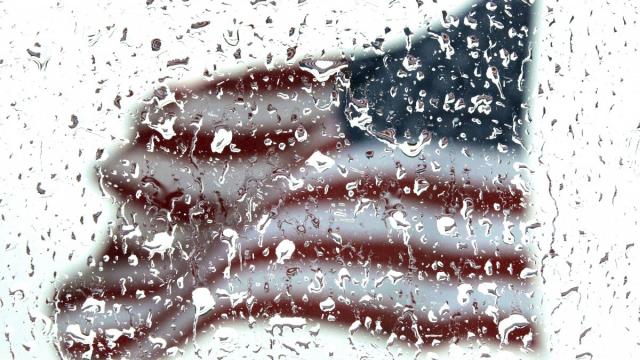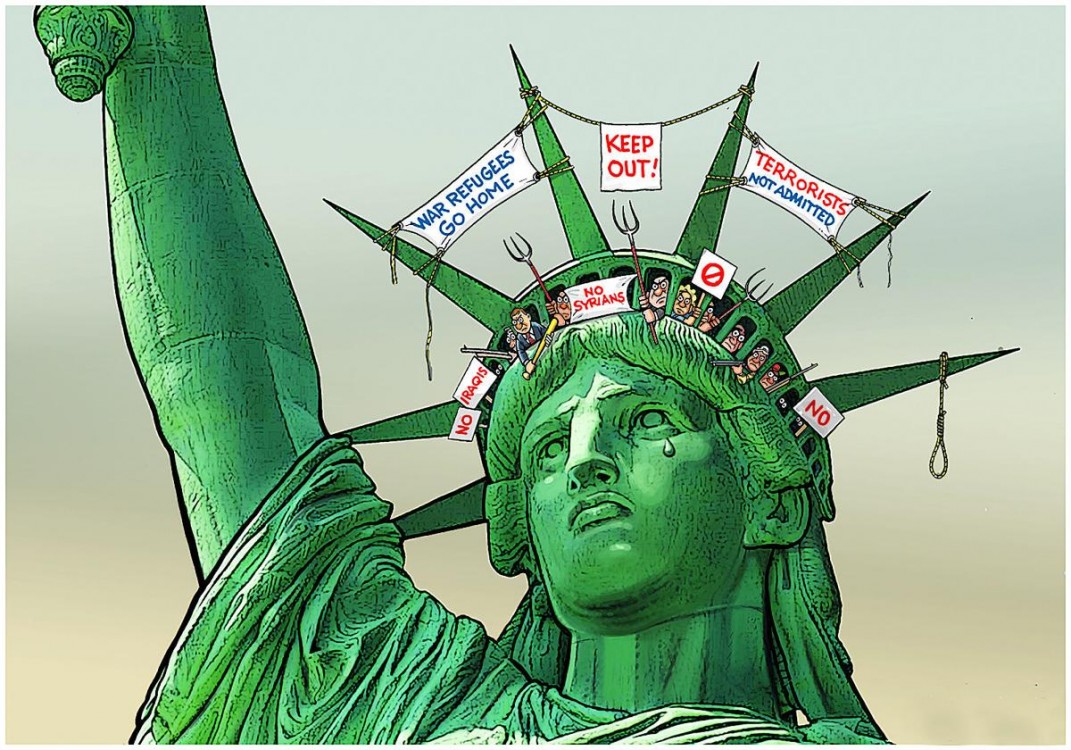
On Sunday in Moscow, France’s national soccer team won the 2018 World Cup Final, defeating Croatia 4-2 and inspiring huge celebrationsin the streets of Paris and other French cities. Soccer fans all over the world are singing “La Marseillaise,” eating croissants and saying, “Oui, vive la France!” Yet in the U.S., hating soccer is a tradition among far-right Republicans like Glenn Beck and Ann Coulter (who, during the 2014 World Cup, equated growing interest in soccer in the U.S. with “the nation’s moral decay).”
Their rabid disdain for the world’s #1 sport stems from an irrational belief in “American exceptionalism”; Beck, Coulter and other reactionaries cannot stand the thought of Europe or Latin America doing something much better than the U.S. Yet soccer is hardly the only area in which the U.S. is taking a back seat to other parts of the world. When it comes to health care, infrastructure, life expectancy, mass transit, green energy or the environment, one can hardly make a case for “American exceptionalism”—and instead of disrespecting the achievements of other countries, the U.S. needs to learn from them.
Heath care is an area in which the U.S. has been failing miserably compared to Europe, Australia, Canada, Japan and now, parts of Latin America. Universal health care has been achieved in a long list of countries, which have the higher life expectancy rates to show for it.
According to the Centers for Disease Control’s National Center for Health Statistics, life expectancy in the U.S. is now 78.7 years. And that’s compared to 83 in Japan and Switzerland, 82 in France, Italy, Spain, Canada, Sweden and Australia or 81 in Norway, Portugal, Belgium, New Zealand, the U.K., Germany, Austria, Malta and the Netherlands. A few countries in Latin America have moved ahead of the U.S. in terms of life expectancy, including Chile with 80 years and Costa Rica with 79.
Americans are dying younger than the rest of the developed world, and health care is a crucial factor. Although the Affordable Care Act of 2010, a.k.a. Obamacare, brought health insurance to millions of Americans, it doesn’t go far enough; millions remain uninsured. Yet instead of expanding coverage, the Trump administration and Republicans in Congress have tried to throw millions off of health care. Republicans haven’t succeeded in overturning the ACA, but they’ve been undermining it—and according to the Urban Institute, the result will be 6.4 million fewer Americans insured in 2019 and premiums rising by more than 18% in the market for individual plans.
While the U.S. has many excellent doctors, nurses, hospitals and medical schools, its health insurance system is an absolute disgrace. And the harsh reality is that unless one is rich, it’s much better to get sick in Europe, Canada, Australia, New Zealand or Japan than in the U.S.
“American exceptionalism” is also a joke when it comes to the environment and green energy. European leaders, as a rule, are seriously worried about climate change and working on ways to address it; French President Emmanuel Macron has been critical of Trump for pulling the U.S. out of the Paris accords last year—which was a departure from Obama-era policy. Trump has aggressively promoted fossil fuelswhen the U.S. should be moving full speed ahead with green energy and helping its allies fight the devastation of climate change.
In terms of infrastructure, the U.S. has been going from bad to worse—and Europe is way ahead of the U.S. when it comes to high-speed train travel. Europe boasts trains that travel from Barcelona to Paris at 217 MPH or London to Brussels at 200 MPH, while Japan’s bullet trains can reach speeds of 275 MPH; in contrast, Amtrak’s top speed is around 150 MPH—although trains from New York City to Washington, DC average around 80 MPH.
In other words, most Amtrak trains between two of the U.S.’ most important business centers—New York City and Washington, DC—are traveling at less than half the speed of Eurostar trains between London and Brussels. Those speeds make a case not for “American exceptionalism,” but “European exceptionalism.” And “Japanese exceptionalism” is certainly alive and well when it comes to Japan’s lightning-fast trains.
“American exceptionalism” certainly doesn’t apply to public transportation in the U.S., where most people drive to work because there aren’t enough busses or trains to get them there on time. Apart from a handful of major cities—including New York City, Chicago, Philadelphia, Boston and Washington, DC—mass transit is a joke in the U.S. compared to Europe or Japan. Millions of European commuters can live comfortably without a car, whereas in most U.S. cities, a car is a necessity.
The U.S. is also falling short when it comes to education, including foreign language study. European countries like Germany, Switzerland, the Netherlands, Denmark and Sweden are smart enough to realize that mastering two, three or more languages is an excellent skill to have whether one works in tech, politics, higher education or law enforcement. But the U.S. remains heavily monolingual.
When Ann Coulter rails against the World Cup because she equates it with countries other than the U.S., it illustrates a crude, ignorant, buffoonish sort of nationalism that doesn’t benefit the U.S. in any way. It’s the sort of ignorance that is also at work when people are insulted and berated by bigots merely for speaking Spanish in public.
If President Trump is really interested in “making American great again,” he’s going to have to do much better. And nationalistic blowhards like Coulter and Beck should—instead of resenting Europe, Japan or Australia for their accomplishments with health care, education and infrastructure—be figuring out ways for the U.S. to emulate them.












